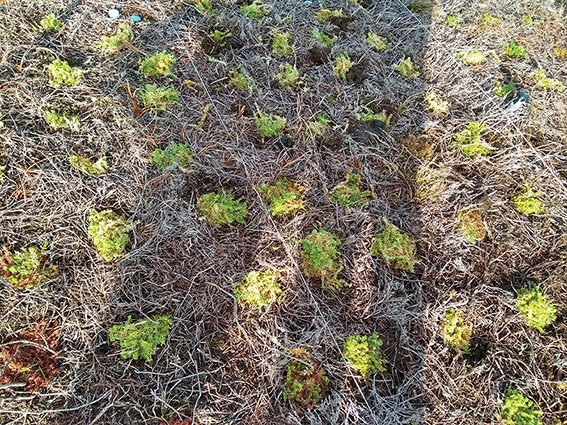Yorkshire Water has invested £1.5m and worked alongside Yorkshire Peat Partnership (YPP) at the Swinton Estate near Masham to improve the quality of Yorkshire’s drinking water.
Peat has been laid down over the uplands of Yorkshire over thousands of years forming vast, wet areas known as blanket bog. Healthy blanket bog helps filter water before it reaches Yorkshire’s reservoirs, but damaged peatlands release particles of organic matter that discolours drinking water and is expensive to remove.
In the 70s, much of the county’s peatland was damaged by drainage channels – known as grips – dug to improve the land for agriculture. As well as drying out the peat, this led to widespread erosion in the form of gullies, bare peat and peat hags – steep walls of peat where wind and water have undercut the vegetation.
Yorkshire Water, YPP and the Swinton Estate have been working together to repair this damage and restore blanket bog at Colsterdale above Masham, near Harrogate.
The works include blocking 30 km of grips and gullies to help keep the bog wet and stop sediment being washed into the water supply; reducing the slope on peat hags to prevent further erosion; and replanting bare peat and peat hags to return the bog to its natural peat forming state.
Also included, is an important monitoring study looking at the effectiveness of inoculating areas of moorlands with key species of sphagnum.
Andrew Walker, Catchment Strategy Manager at Yorkshire Water said: “Sphagnum is a moss that is a key component of blanket bog which can hold over eight times its weight in water. It helps not only to keep the moors wetter, and the water draining from it cleaner, but it can also help reduce the flow of water off the moors, thereby helping to reduce the impacts of flooding further downstream.
“This study, working with Manchester University will help inform and guide land managers as to what species, techniques and density of planting will have the most impact, and we are extremely grateful to the Estate and the Head Keeper in particular, for allowing us access to the monitoring sites over the coming months and years.”
The work will help improve the moor biodiversity and habitat. The UK holds 13 per cent of the world’s blanket bog, which is a key store of carbon, and if properly managed has the potential to sequester and lock up carbon. This is significant in terms of mitigating against climate change.
Dr Tim Thom, Peat Programme Manager at Yorkshire Wildlife Trust, which leads YPP, said: “It’s been tremendous working with Yorkshire Water and the Swinton Estate. We’re looking forward to expanding that work with our research into Sphagnum planting techniques that will help improve peatland restoration across Yorkshire.”




